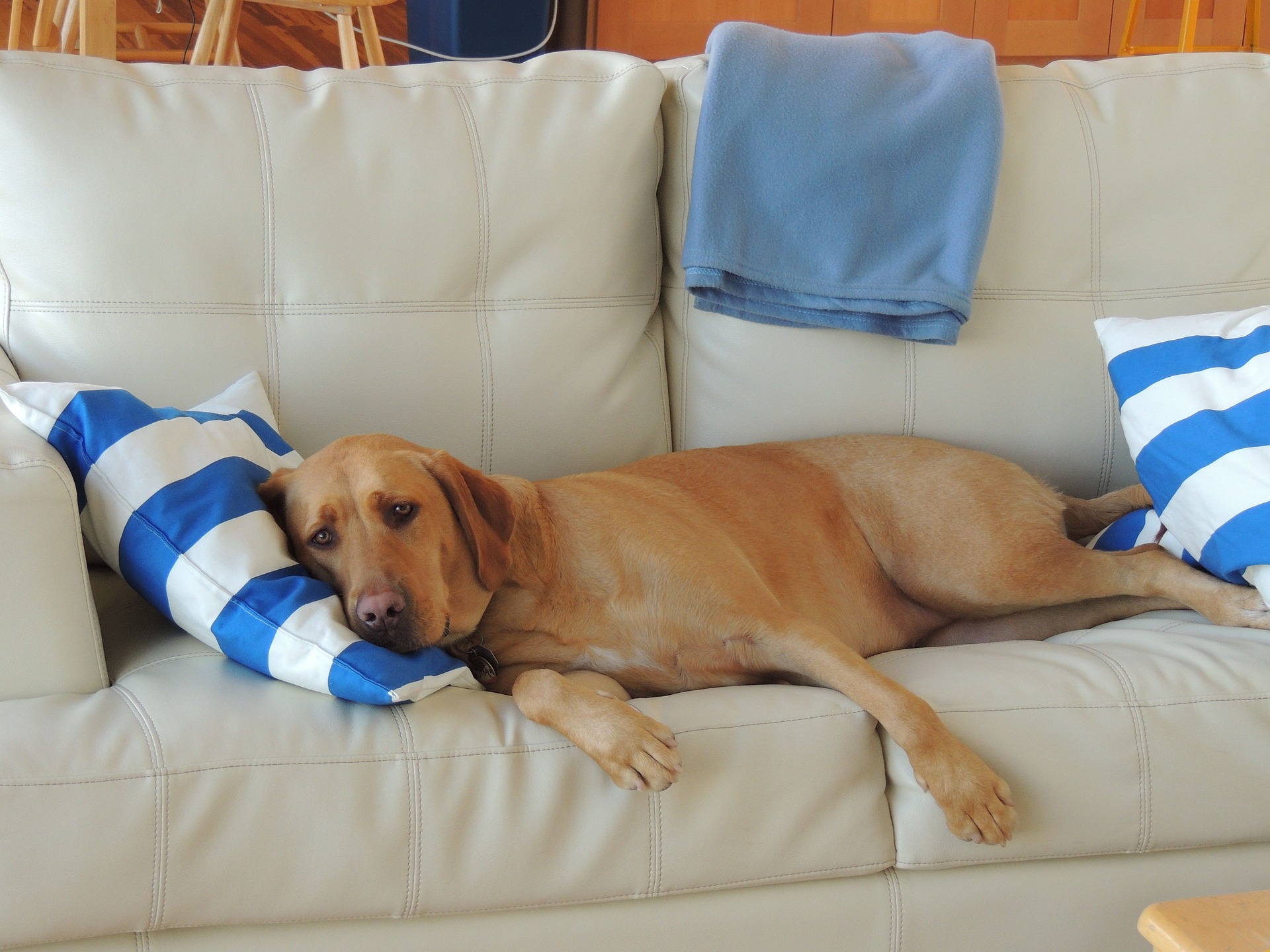Life would surely be a lot easier if our dogs could talk to us. We would love to know for sure if they are happy or sad, feeling ill, or experiencing stress. As it is, however, the way your dog is acting is a telltale sign that something is going on with them. Bad behavior – or behavior which is out of the ordinary – is often thought to be signs of a misbehaving dog, but is more often simply a symptom that they are upset, confused or scared.
Separation anxiety is a condition which many dogs exhibit when separated from their owners for any length of time. It may occur as quickly as within minutes after everyone leaves. Because many people leave their dogs for the day when they go to work and school, this is a real potential problem for many dog owners.

Signs of Separation Anxiety
Without a keen perception of time, dogs are apt to feel that they have been deserted by those they love – and this can manifest in many undesirable behaviors. It is important for the dog owner to recognize that the dog is not trying to disobey or act out. Learning the possible symptoms of separation anxiety should help you to not only spot and correctly identify what they are feeling but take steps to ease their anxiety.
- Urinating or Defecating in the House: If this is a problem even when you are home, it is likely not tied to separation anxiety. But if your dog reacts to your absence in this way, it may be a clear sign that they are distressed.
- Incessant Barking: Some dogs who suffer from separation anxiety beginning barking or howling soon after their owners leave, and there is no other reason for their loud vocalization. (Your neighbors will probably notify you of this one!)
- Destructive Behavior: A dog suffering from separation anxiety will often chew on door frames, scratch at walls or doors, or destroy household objects such as pillows or furniture. Not only is this frustrating to the owner, but it can be harmful to the dog, who can break teeth or nails in his frantic efforts. Again, if this behavior only occurs in your absence, it is likely caused by his stress, not a bad demeanor.
- Trying to Escape: If you keep the dog in a confined space when you are gone, and return to clear signs that they tried to escape – bite marks, or a barrier which has shifted – they may be anxious about your being gone.
Why Does Separation Anxiety Occur?
There are no conclusive studies as to why this condition manifests in some dogs and not in others. However, the fact that adopted shelter dogs are more likely to suffer from separation anxiety does indicate that a loss in their past may trigger the behavior.
The most likely causes of the condition are a change in ownership, such as a dog being given to a new family; a change of residence, especially if the animal spent many years in the same place; or an abrupt change in schedule, such as when owners go back to work full-time. Dogs may also react in this way after the death of a primary owner.
The most important thing to remember about separation anxiety is that your dog is crying out for help. Check out our tips for easing your dog’s fear and confusion; or call the experts at Gulf Coast K9 Dog Training for advice as to training programs which may help.


